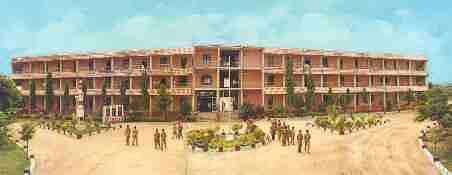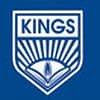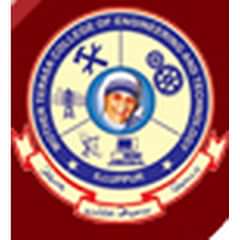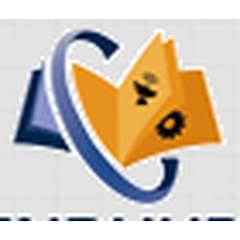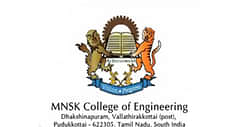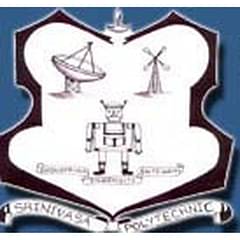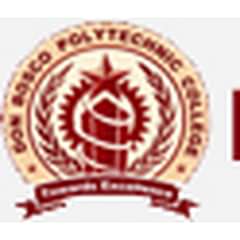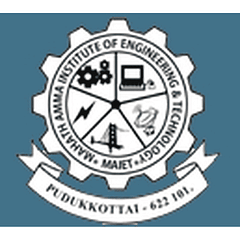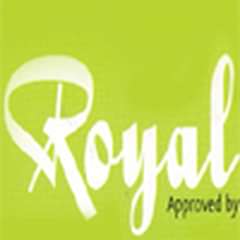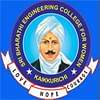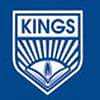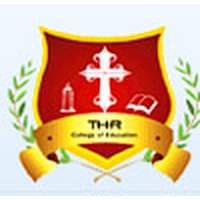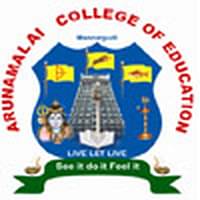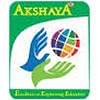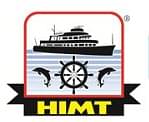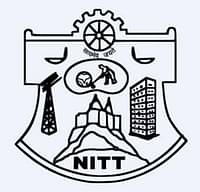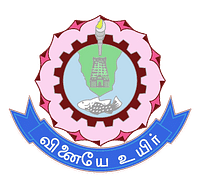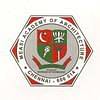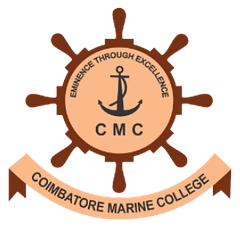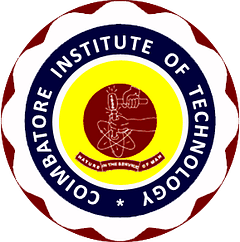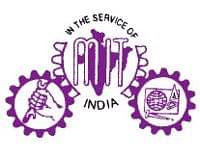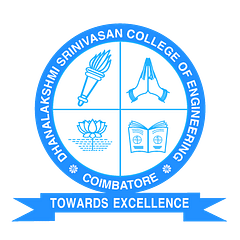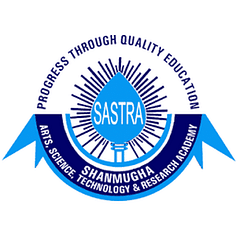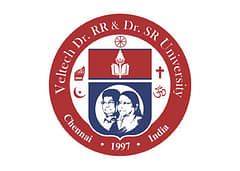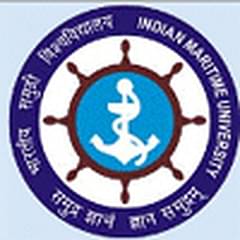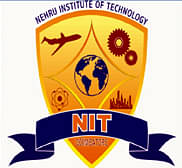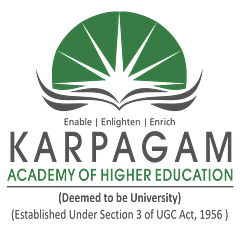Table of Contents
MCE Campus
Mookambigai College of Engineering campus is well equipped with following facilities :
- Computer Centre
- Transports
- Post Office
- Canteen
- ATM
- Library
MCE Hostel & Fees Structure
Our College has separate and well-furnished hostels to accommodate 720 boys and 412 girls students within the Campus which make the students feel at home. The hostel mess managed by students, provides delicious South Indian food on dividing system. The hostels are provided with internet facilities for students.
- There are two dining halls, providing South Indian delicious food.
- RO Water purifiers to ensure supply of purified water.
- T.V. sets.
- Gymnasium.
- Wi-Fi facility in the hostel blocks.
- Supply of newspapers, weeklies, monthlies, and other valuable reading materials.
- In-door games are available inside the hostels.
Students Activities & Clubs
Introduction
- The National Service Scheme (NSS) is an Indian government-sponsored public service program conducted by the Department of Youth Affairs and Sports of the Government of India. Popularly known as NSS, the scheme was launched in Gandhiji's Centenary year, 1969. Aimed at developing student's personality through community service, NSS is a voluntary association of young people in Colleges, Universities and at +2 level working for a campus-community linkage. The cardinal principle of the NSS programme is that it is organized by the students themselves, and both students and teachers through their combined participation in community service, get a sense of involvement in the tasks of nation building.
Motto
- "NOT ME, BUT YOU" This reflects the essence of democratic living and upholds the need for selfless service and appreciation of the other person’s point of view and also to show consideration for fellow human beings. It underlines that the welfare of an individual is ultimately dependent on the welfare of society on the whole. Therefore, it should be the aim of the NSS to demonstrate this motto in its day-to-day programme
Objectives
- The broad objectives of NSS are to:
- understand the community in which they work;
- understand themselves in relation to their community;
- identify the needs and problems of the community and involve them in problem solving process;
- develop among themselves a sense of social and civic responsibility;
- utilize their knowledge in finding practical solution to individual and community problems;
- develop competence required for group living and sharing of responsibilities;
- gain skills in mobilizing community participation;
- acquire leadership qualities and democratic attitude;
- develop capacity to meet emergencies and natural disasters
- practice national integration and social harmony.
Rotary Club -
Rotaract was founded in 1968 by Rotary International, a worldwide organization of service minded business and professional leaders. Mr. S.Mohamed Yusuff, Staff Coordinator of Rotaract Club of Mookambigai College of Engineering handled a session on
- ”EDUCATION EXPO 2013”, conducted by Rotary Club of Tiruchirapalli Metro on Mar 29th – Mar 31st at Indian Medical Association (IMA) Hall, Salai Road, Trichy.
- “RYLA’12”, conducted by Rotary Club of Tiruchirapalli Rockcity on Sept. 29th – Oct 2nd 2012 at CSI Retreat Centre, Kodaikanal.
- “District Assembly (Club Office Bearers)”, conducted by Rotaract District Organization of Rotary International District 3000 on 22nd July 2012 at Rotaract Club of PSNA College of Engineering and Technology, Dindigul.
- “PETS & SETS (President Elects Training Seminar & Secretary Elects Training Seminar)”, conducted by Rotaract District Organization of Rotary International District 3000 on 8th July 2012 at Aasee Educational Institution, Karur.
Participate
About 2 Rotaractors from the Rotaract Club of Mookambigai College of Engineering have attended a “RYLA’12”, conducted by Rotary Club of Tiruchirapalli Rockcity on Sept. 29th – Oct 2nd 2012 at CSI Retreat Centre, Kodaikanal. Rtr. K.Saravanan (III Year/E&I) and Rtr. S.Sankaranarayanan (III Year/EEE), members of Rotaract Club of Mookambigai College of Engineering has participated in the 4 days Training Program entitled "RYLA(Rotary Youth Leadership Award) for Rotaractors", and awarded “Best Behaved RYLARIAN” organized by Rotary Club of Tiruchirapalli Rockcity on Sept. 29th – Oct 2nd 2012 at CSI Retreat Centre, Kodaikanal. Rtr. K.Saravanan (III Year/E&I), Rtr. N.Manoharan (III Year/E&I) & Rtr. C.Narayanan (IV Year/E&I), members of Rotaract Club of Mookambigai College of Engineering has participated in the 2 days Training Program entitled “PETS & SETS (President Elects Training Seminar & Secretary Elects Training Seminar)”, from Rotaract Club of Pudukkottai Kingtown conducted by Rotaract District Organization of Rotary International District 3000 on 8th July 2012 at Aasee Educational Institution, Karur.
The members of Rotaract Club of Mookambigai College of Engineering named
- S. Sankaranarayanan (III Year/EEE) – Rotaract President of Mookambigai College of Engineering)
- K. Siva (III Year/Civil)
- K. Sivaprakasam (I Year/AutoMobile Engineering)
- P. Vinoth (I Year/Mechanical Engineering) has donated A2B positive blood (a very rare blood group) for Mr. Philomine on 5th Feb 2013 at KMC multispeciality centre, Tiruchirapalli.
Health Club -
“The Youth Red Cross” is the most important constituent of its parent organization, Indian Red Cross. The Indian Red Cross is a voluntary humanitarian organization having a network of over 700 branches throughout the country, providing relief in times of disasters/emergencies and promotes health & care of the vulnerable people and communities. It is a leading member of the largest independent humanitarian organization in the world, the International Red Cross & Red Crescent Movement. The Mission of the Indian Red Cross is to inspire, encourage and initiate at all times all forms of humanitarian activities so that human suffering can be minimized and even prevented and thus contribute to creating more congenial climate for peace.
It is a group movement organized at the initial stages for students between 18 and 25 years of age within the colleges. A qualified lecturer is recognized as the leader and he is called the programme officer under his guidance, the students are trained and encouraged to manage the affairs of the group, electing their own office-bearers.
Main Objectives
- To create an awareness on the care of their own health and of others.
- To understand and to accept of civic responsibilities and acting accordingly with humanitarian concern to fulfill the same.
- To enable the growth and development of a spirit of service and sense of duty with dedication and devotion in the minds of youth.
- To foster better friendly relationship with all without any discrimination.
Principles
- Service to the sick and suffering.
- Promotion of National and International friendship.
- To develop the mental and moral capacities of the Youth.
Activities
The Indian Red Cross's programs are grouped into four main core areas: Promoting humanitarian principles and values; Disaster response; Disaster preparedness; and Health and Care in the Community.
- Red Cross promotes the Humanitarian values, which encourage respect for other human beings and a willingness to work together to find solutions to problems. From the seven fundamental principles, the movement aims to influence the behavior of all the people.
- Disaster response continues to represent the largest portion of IRCS (Indian Red Cross Society) work, with assistance to millions of people annually ranging from refugees to victims of natural disasters.
- The sharp increase in the number of natural disasters countrywide in recent years has prompted the Red Cross to devote more attention to Disaster preparedness activities. These aim to make Red Cross Societies and communities more aware of the risks they face, how to reduce their vulnerability, and how to cope when disaster strikes.
- Too many people die as a result of no access to even the most basic health services and elementary health education. Health and community care has become a cornerstone of humanitarian assistance, and accounts for a large part of Red Cross spending. Through these programs, the Red Cross aims to enable communities to reduce their vulnerability to disease, and prepare for and respond to public health crises.
Science Club -
Science refers to an intellectual activity that is designed to discover information about a specific area of study. Science uses various methods to make discoveries and produce knowledge. Science is mainly based on evidence. Science clubs are wonderful tools to improve the culture of science learning at school and college. It was started in our college at 2005.
Aim:
- To help students acquire basic knowledge of Science.
- To help students develop a scientific way of learning.
- To develop students' awareness of and concern for scientific issues in personal, social, environmental and technological context.
- To develop among the student the spirit and attitude of healthy competition for the individual and social cause.
Objectives
- To arouse and cultivate students' interest in learning Science.
- To encourage student to participate actively in the activities organized by the Science Club.
- To promote the use of IT in learning Science.
- To understand scientific knowledge through experiments.
- To develop students, interest and participation in the practical application of the knowledge related to different branches of sciences.
Activities
- Two guest lecture conducted by science club in a year.
- National Science Day is celebrated on February 28 each year.
Health Club -
A Red Ribbon Club aims at harnessing the potential of the youth by equipping them with correct information on HIV / AIDS Prevention, Care and Support and Treatment. It also aims in building their capacities as peer educators in spreading messages on positive health behavior in an enabling environment and increasing voluntary blood donation from among youth. Through the RRCs youth are encouraged to learn about safe and healthy lifestyles. The RRC promotes access to information on safe sexual behaviors and voluntary blood donation as well as enable them to become change agents in HIV/AIDS program.
- Red like Love, as a symbol of passion and tolerance for those affected.
- Red like blood, representing the pain caused by many people who have died of AIDS.
- Red like the anger about the helplessness about which we are facing for a disease for which there is still no cure.
- Red as a sign of warning not to carelessly ignore one of the biggest problems of our time
Objectives
The Society was established towards fulfillment of following aims and objectives:
- To reduce new HIV infection among youth by raising their risk perception through awareness on HIV/AIDS.
- To induce among youth the spirit to help and support people living with HIV/AIDS (PLHIVs) thereby reducing stigma and discrimination.
- To motivate youth and build their capacity as peer educators and change agents by developing their skills on leadership, negotiation and team building.
-
To promote voluntary blood donation among youth.
Entrepreneurship Club -
Entrepreneurship Development cell in Mookambigai College of Engineering was established in the year 2006, in association with the Department of Science & Technology, Government of India & All India Financial Institution to create an atmosphere for innovation and entrepreneurship for active interaction between academics and industries for sharing ideas, knowledge, experience and facilities for the development of new technologies and its rapid transfer to the end users.
Modalities
- Interface between institutes and industry.
- R & D activities.
- Entrepreneurship Awareness camps
- Product development.
- Entrepreneurial development training programme.
- Calibration and testing facilities and quality assurance.
- Creation of awareness for 'State of Art Technology'.
- Consultancy services.
- Organising seminars, symposia, workshops, continuing education
programmes and conferences. - Creating an information data bank.
Cultural Club -
Top Courses at Mookambigai College of Engineering
Mookambigai College of Engineering Pudukkottai QnA
What are the various facilities available on campus at MCE , Pudukkottai ?
Admission Updates for 2025
Nehru Institute of Engineering & Technology
Coimbatore (Tamil Nadu)
Loyola Institute of Technology
Chennai (Tamil Nadu)
Dr. M.G.R. Educational And Research Institute
Chennai (Tamil Nadu)
EASA College of Engineering & Technology
Coimbatore (Tamil Nadu)
Nehru Institute of Technology
Coimbatore (Tamil Nadu)

